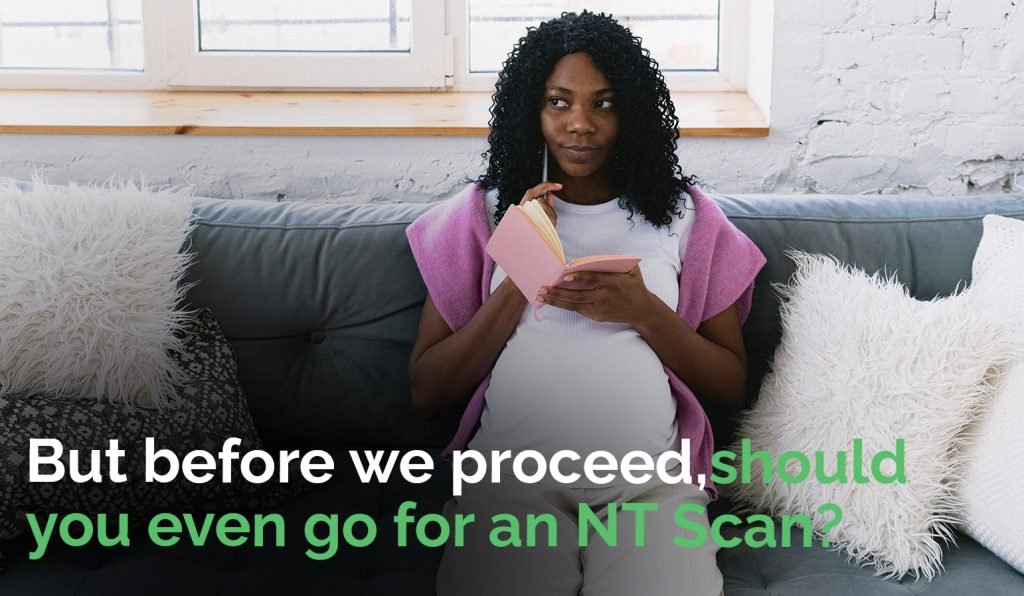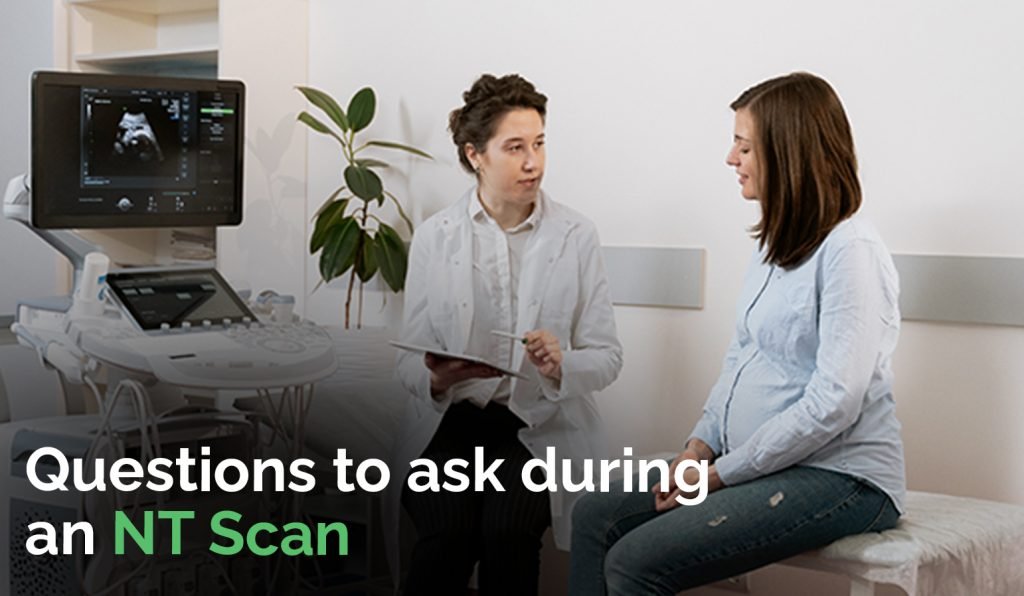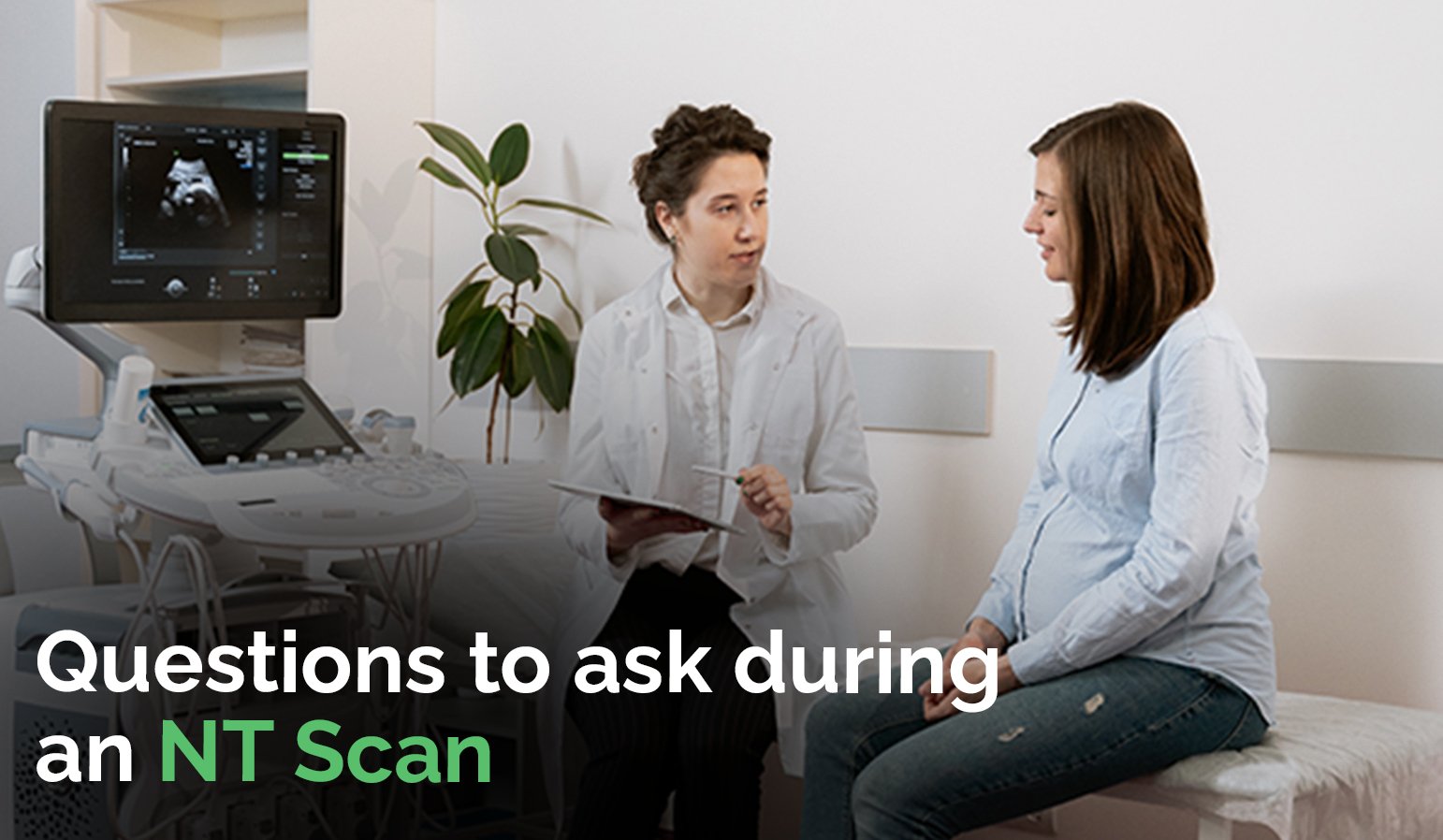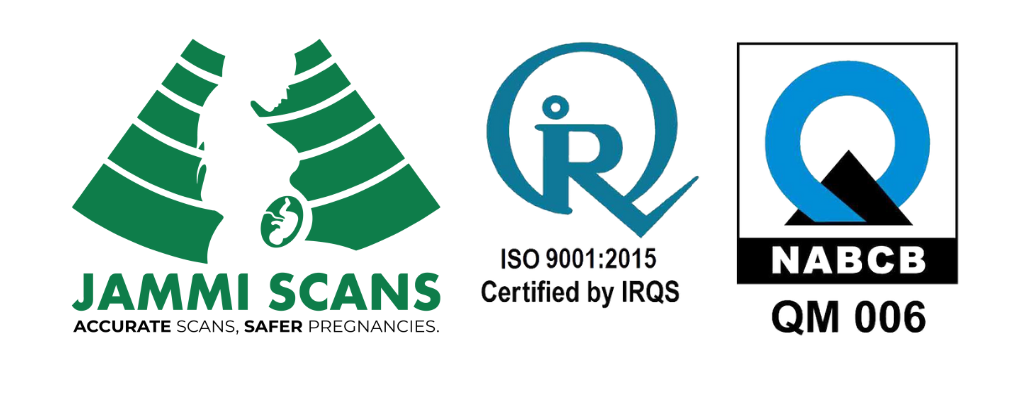Table of Contents
ToggleQuestions to ask during an NT Scan
If you are an expectant parent, checkups, and ultrasounds are a part of your life now. For some of you, the ultrasounds and tests may be a little puzzling, especially if you are a first-time parent, and that is where we can help.
In this blog, we will talk to you about not just the questions to ask during an NT scan but also what this scan means for you and your baby.
Read till the end to know more!
What is an NT Scan?
Nuchal translucency (NT) scan is a prenatal screening procedure conducted during the first trimester of pregnancy to identify possible chromosomal or congenital defects in an unborn baby. The Nuchal translucency test measures the amount of fluid under the fetal neck skin using ultrasound.

This test is usually performed between 11 weeks and 1 month of the pregnancy. In this article, we will take you through the questions to ask during an NT scan.

Do I need an NT scan?
As you age, the likelihood of having a baby with chromosomal abnormalities increases. However, it’s important to remember that anyone can have a child with these conditions – not just older mothers-to-be. Screening tests are available to all pregnant women, but whether or not to have one is a personal decision.
Scans can provide peace of mind that everything is progressing normally with your baby.
However, they can also reveal that your baby has an abnormality. It’s worth considering why you want the test and what you would do if the results showed an increased risk of chromosomal abnormalities before making a decision.
Some women opt not to have any testing, while others choose to have diagnostic tests like chorionic villus sampling or amniocentesis, which can give them more definitive information about their baby’s health.

Some questions to ask during an NT scan to your midwife or doctor include:
- What tests, treatments, or scans are routine during pregnancy?
- How do different procedures work?
- Why do I need them?
- When should they be done?
- What are the benefits to me or my baby?
- Are there any side effects?
- Are there any risks to me or my baby?
- Do I have to have them?
- What happens if the results of a test are positive or negative?
- What is the chance of a false positive or false negative result?
- Is there anything I need to do to prepare for the test?
- Will there be extra costs involved?
- If something is wrong with my pregnancy, what support is available?
- Are there any alternatives to an NT scan?
NIPT is a test that can be done during pregnancy to screen for chromosomal abnormalities. It is more accurate than other screening tests, but it is also more expensive. Some women choose to do NIPT instead of other tests, or after they get a high-risk result.
If you’re considering different options for antenatal screening, talk with your doctor or midwife for advice.
Also, read Everything you need to know about pregnancy scans and their reports in this blog
Conclusion
Your GP, obstetrician, or midwife can answer most of your questions and give you more information on antenatal screening tests. In case you need more information, they might refer you to a genetic counselor to help guide you through the consequences of your results and any decisions you may need to make.




